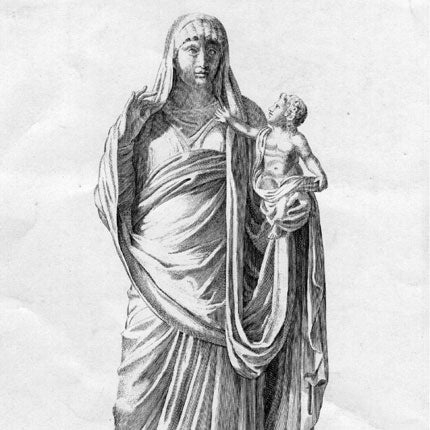The First Ladies of Rome: The Women Behind the Caesars, By Anneliese Freisenbruch
Friends, Romans, countrywomen...

Your support helps us to tell the story
From reproductive rights to climate change to Big Tech, The Independent is on the ground when the story is developing. Whether it's investigating the financials of Elon Musk's pro-Trump PAC or producing our latest documentary, 'The A Word', which shines a light on the American women fighting for reproductive rights, we know how important it is to parse out the facts from the messaging.
At such a critical moment in US history, we need reporters on the ground. Your donation allows us to keep sending journalists to speak to both sides of the story.
The Independent is trusted by Americans across the entire political spectrum. And unlike many other quality news outlets, we choose not to lock Americans out of our reporting and analysis with paywalls. We believe quality journalism should be available to everyone, paid for by those who can afford it.
Your support makes all the difference.As Anneliese Freisenbruch admits in this excellent history, most of the Ancient Roman women discussed in her book "would never have come to historical notice if it were not for the men they married or the sons they gave birth to", such was the patriarchal society in which they existed.
There is hardly anything written by women of the era, and too many contrasting versions from male playwrights for Freisenbruch to be definitive. But these more sceptical portraits of women, often either vilified or venerated, are very welcome.
Livia, the wife of Octavian Caeser (who went on to become the Emperor Augustus), had her image projected publicly, on coins and in marble. Frugal and responsible, Rome's first empress was held up as an example of Roman womanhood, and played a part in her husband's political affairs, but gossip after his death hinted at a darker side to Livia. Her step-daughter, Julia, was a popular good-time girl; her daughter, Agrippina Major, became a formidable mother of nine (among them Caligula) who once held a fort against a German army.
Freisenbruch's conclusion is perhaps not so surprising: patriarchal societies don't much like it when strong women make their mark, and do their best to denigrate them after their deaths. But the stories Freisenbruch tells of political machinations and literary aspirations are among the most fascinating of any historical period.
Join our commenting forum
Join thought-provoking conversations, follow other Independent readers and see their replies
Comments